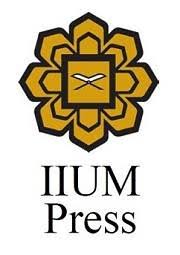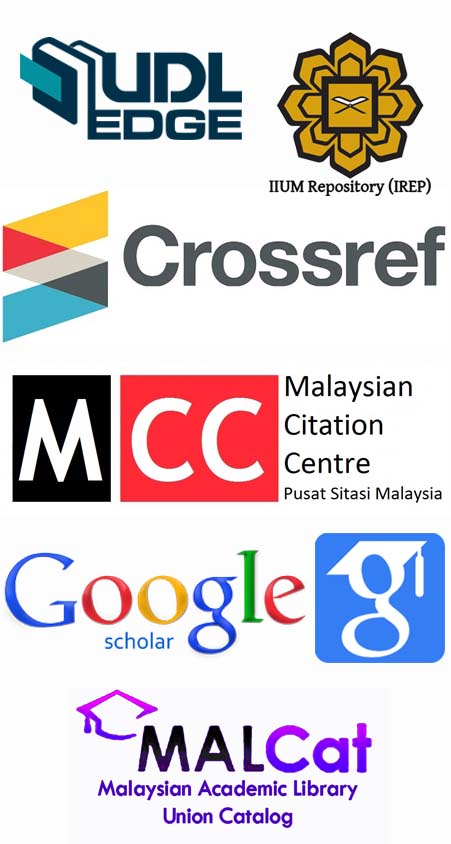The Perceptions of Teachers and Students Towards the Ulul Albab Curriculum: A Case Study of SMAKL
DOI:
https://doi.org/10.31436/alburhn.v4i2.166Keywords:
Ulul Albab curriculum, Islamic education, Malaysian education system, Qurʾān memorisation, curriculum designAbstract
Integrated curriculum has begun to take a positive lead in the educational development in Malaysia, where memorisation of the Qurʾān is integrated into the basic academic and Islamic subjects and is beginning to be implemented in many schools all over Malaysia. This integrated curriculum or commonly known as the Ulul Albab Curriculum has successfully been implemented over the years. This study therefore aims to find and assess the success factors through analysing the perceptions of those involved in the exercise. The study is quantitative in nature. Questionnaires were used as the instrumentation for data collection and were distributed to a total of 220 respondents: 50 teachers and 170 students from Sekolah Menengah Agama Kuala Lumpur (SMAKL). The findings of the study were derived from the obtained results of the questionnaire. The research theorises that students’ achievements in various aspects, from personality, individual skills and student discipline are key to measuring how far the curriculum has achieved its objectives. Considering this, the researchers propose that schools should further nurture all aspects of students’ growth; spiritual, physical, and mental so they can work the best in becoming influential models with various sets of skills. The Ulul Albab Curriculum as one of the few formal integrated curricula under the Ministry of Education has to be given more emphasis and attention so that the curriculum can grow and become more outstanding. It is the hope of many Muslim educational theorists that this curriculum will succeed in the future and can become an applicable mechanism to produce quality students who are not only masters of the academic field but also memorisers of the Qurʾan and knowledgeable scholars of religious subjects..
Downloads
References
Abdul Hafiz Haji Abdullah, Prof. Madya Ajmain Safar, Mohd Ismail Mustari, Azhar Muhammad & Idris Ismail (2003), Keberkesanan Kaedah Hafazan di Pusat Tahfiz. Universiti Teknologi Malaysia.
Abdullah bin Mohammad Basmeih (2000), Tafsir Pimpinan Ar-Rahman Kepada Pengertian al-Qurʾan. Darul Fikir, Kuala Lumpur.
Arniyuzie Mohd Arshad (2015), Ulasan Sistematik: Program Ulul Albab Dalam Sistem Pendidikan di Malaysia. Published in: Jurnal Kurikulum & Pengajaran Asia Pasifik, Oktober 2015, Bil. 3, Isu 4.
Azmil Hashim (2015), Correlation between Strategy of Tahfiz Learning Styles and Students Performance in al-Qurʾan Memorisation (Hifz). Published in the Mediterranean Journal of Social Sciences, MCSER Publishing, Rome-Italy, Vol 6, No 2.
Azmil Hashim & Ab. Halim Tamuri (2012), Persepsi Pelajar Terhadap Kaedah Pembelajaran Tahfiz al-Qurʾan di Malaysia. Published in the Journal of Islamic and Arabic Education 4 (2), 2012.
Azmil Hashim, Ab. Halim Tamuri & Misnan Jemali (2013), Latar Belakang Guru Tahfiz dan Amalan Kaedah Pengajaran Tahfiz al-Qurʾan di Malaysia. Published in the Online Journal of Islamic Education, January 2013, Vol. 1, Issue 1.
Azmil Hashim, Ab. Halim Tamuri & Mohd Aderi Che Noh (2014), The Relationships between Etiquettes of Tahfiz (Memorisation al-Qurʾan) and Tahfiz Achievement. Published in the Australian Journal of Basic and Applied Sciences, 8(23) Special 2014.
Bahagian Pendidikan Islam, Kementerian Pendidikan Malaysia (2015), Maklumat Asas Pelaksanaan Kurikulum Bersepadu Tahfiz. Kementerian Pendidikan Malaysia.
Daniel L. Stufflebeam & Anthony J. Shinkfield (1985): Systematic Evaluation. Kluwer-Nijhoff Publishing, 1985.
Daniel L. Stufflebeam & Anthony J. Shinkfield (2007): Evaluation Theory, Models, & Applications. Jossey-Bass, John Wiley & Sons, Inc., 2007.
Daniel L. Stufflebeam, George F. Madaus & Thomas Kellanghan (2000): Evaluation Models: Viewpoints on Educational and Human Services Evaluation, Second Edition. Kluwer Academic Publishers, Boston.
Floyd J. Fowler, Jr. (2014): Survey Research Methods, Fifth Edition. SAGE Publications, Inc. 2014.
George F. Madaus, Michael Scriven & Daniel L. Stufflebeam (1983): Evaluation Models: Viewpoints on Educational and Human Services Evaluation, First Edition. Kluwer-Nijhoff Publishing, 1983.
Godwin V. Ong’anya, Harry O. Ododa (2009): Questionnaire as a Data Collection Instrument.
Hamka (2007), Tafsir al-Azhar. Pustaka Nasional PTE LTD.
Isam Salih Muhammad al-‘Uwayyid (2010), Fann At-Tadabbur Fi al-Qurʾan al-Kareem. Markaz At-Tadabbur Lil-Istisyarat At-Tarbiyyah Wa At-Ta’limiyyah, Saudi Arabia.
Ishak Suliaman (2015), Realiti dan Masa Depan Huffaz Ulul Albab di Malaysia: Satu Kajian Kes di MRSM Ulul Albab (Maktab Rendah Sains Mara). A research paper presented in: Seminar al-Qurʾan Peringkat Negeri Pulau Pinang 1436H/2015M.
Kementerian Pelajaran Malaysia (2012), Dasar Pendidikan Kebangsaan: Kementerian Pelajaran Malaysia.
Mohd Shahril Ahmad Razimi & Prof Dr. Sidek Baba (2013), Integrating Ulul Albab Education and Science Education in Development Insan Ta’dibi Generation: A Case Study of MARA Junior Science College (MJSC): WEI International Academic Conference Proceedings, Antalya, Turkey.
Murihah Abdullah & Mohd Faeez Ilias (2015), Pendidikan Tahfiz di Malaysia: Satu Sorotan Sejarah. Conference Paper, October 2015.
Norhazriah Mohamed @ Ismail (2012), Program Ulul Albab Suatu Proses Transformasi Pendidikan Malaysia: Kajian Kes Sekolah Menengah Imtiaz, Terengganu. A research paper presented in: Workshop Antarabangsa Pembangungan Berteraskan Islam V (W API-5).
Nor Zalmiah Jahidin and Hamidah Mat (2014), Future Islamic Studies Curriculum and Its Instruction: A Glimpse at al-Amin Integrated Islamic Curriculum (AAIIC).
Rabi’atul Athirah Muhamad Isa (2016), Pelaksanaan Mata Pelajaran Ḥifẓ al-Qurʾān Berdasarkan Kurikulum Tahfiz Model Ulul Albab: Kajian di Sekolah Menengah Kebangsaan Agama Kuala Lumpur. Universiti Pendidikan Sultan Idris.
Robert S. Randall (1973): An Operational Application of the CIPP Model for Evaluation. An Article published in the book: Evaluation of Education. Educational Technology Publications, Inc. 1973.
Sidek Ariffin, Mustaffa Abdullah, Ishak Suliaman, Khader Ahmad, Fauzi Deraman, Faisal Ahmad Shah, Mohd Yakub Zulkifli, Monika Munirah, Mohd Murshidi, Jilani Touhami, Ahmad K.Kasar, Selamat Amir & Mohd Roslan (2013), Effective Techniques of Memorising the Qurʾan: A Study at Madrasah Tahfiz AlQurʾan, Terengganu, Malaysia. Published in the Middle East Journal of Scientific Research 13.
Sidek Ariffin, Mustaffa Abdullah & Khader Ahmad (2015), Method on Memorisatoon the Qurʾan in Malaysia: A Study in Darul Tuba Institute, Malaysia. Published in the Proceedings of the International Conference on Global Business, Economics, Finance and Social Sciences (GB15- Thai Conference).
Surul Shahbudin Hassan, Dr Muhammad Azhar Zailani (2013), Khatam al-Qurʾan in Islamic Education Curriculum in Malaysia. Published by Elsevier Ltd. for the 13th International Educational Technology Conference.
Umar Abid Hasanah (1981), Kaifa Nata’amal Ma’a al-Qurʾan. al-Maahad al-‘Ilmi Li al-Fikr al-Islami.
Umi Kalthom Abdul Manaf, Nurul Fitriah Alias, Ady Hameme Nor Azman, Fadzilah Abdul Rahman & Hafizah Zulkifli (2014), Expectations of Majlis Amanah Rakyat (MARA) Stakeholders on The Ulul Albab Curriculum at a MARA Junior Science College (MRSM): Advances in Language and Literary Studies, Vol 5 No 1, February 2014.
W. Paul Vogt (2007): Quantitative Research Methods for Professionals. Pearson Education, Inc. 2007.
Zetty Nurzuliana Rashed & Ab. Halim Tamuri (2014), Melahirkan Generasi al-Qurʾan Melalui Kurikulum Pendidikan Integrasi dan Holistik Jabatan Agama Islam Selangor (JAIS). Published in: Jurnal Pendidikan dan Inovasi, Jilid 1, Isu II (2014).
Downloads
Published
How to Cite
Issue
Section
License
In general, reusing or reproducing substantial portions of al-Burhān content requires permission. This includes the use of text, figures, tables, multimedia content, and any other material published in any issues of al-Burhān Journal of Qur'an and Sunnah Studies. For some instances, al-Burhān may make its content freely viewable; however, such material may require permission for reuse. To seek permission, please contact the editorial.









